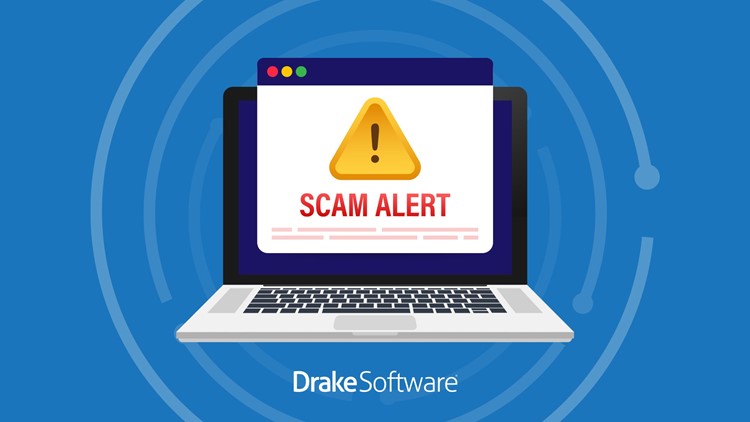Protecting Tax Clients from Scams: 2025 IRS Filing Updates

This month, the IRS—partnering with the Security Summit—is spotlighting identity theft prevention for tax professionals, addressing increasing concerns over delays related to fraud and Employee Retention Credit claims. Here is a review of a few scams to be aware of.
IRS and CASST Take Action to Combat Tax Fraud
The IRS and CASST are implementing significant changes for the 2025 tax season to combat scams that target taxpayers and preparers alike. These initiatives will help you proactively guide your clients through the filing process.
Key Changes for the 2025 Filing Season
Understanding these updates may help you better serve your clients and prevent potential issues with their returns.
1. New Fuel Tax Credit Statement to Mitigate Fraud
The Fuel Tax Credit (FTC) has been widely misrepresented on social media, leading to erroneous claims by taxpayers. To mitigate fraud, the IRS has introduced the "Statement Supporting Fuel Tax Credit (FTC) Computation - 1," which requires additional verification from claimants, to Form 4136.
Key Details:
- Who must file the new statement? Individuals filing Form 1040 and claiming nontaxable fuel use on Form 4136.
- Where is it? The statement is included in the instructions for Form 4136 for tax year 2024.
- Information required: You will need some basic business information (refer to this Form 4186 computation example for more information), Employer Identification Number (EIN), type of fuel purchased, and a breakdown of purchase price versus actual fuel cost.
- Documentation requirements: Taxpayers are not required to submit receipts but should maintain records in case of an audit.
- Penalty for false claims: Erroneous claims could result in a $5,000 penalty per return, assessed separately for each spouse on a joint return.
How to help:
- Educate your clients on the strict eligibility criteria.
- Review supporting documentation before filing claims.
- Maintain records to defend legitimate claims if audited.
2. Increased Scrutiny of “Other Withholding” Claims
The IRS is increasing its review of claims for "Other Withholding" on Form 1040 (Line 25C). Scammers have used this line to falsely claim tax withholding on foreign income and gambling winnings.
Key Updates:
- Taxpayers must attach supporting documentation.
- Affected forms include:
- Form 1042-S (Foreign Person's U.S. Source Income)
- Form 8805 (Foreign Partner's Withholding Tax)
- Form 8288-A (U.S. Real Property Withholding)
- Form W2G (Gambling Winnings)
- Form 8959 (Additional Medicare Tax)
- Schedule K1 (Partner’s Share of Income)
How to help:
- Help clients provide documentation for these claims.
- Double-check withholding information to avoid IRS scrutiny.
3. Targeting "Ghost Preparers" Who Exploit Taxpayers
The IRS continues to crack down on "ghost preparers"—unregistered tax preparers who charge for services but fail to sign returns, leaving taxpayers vulnerable to penalties and audits.
To combat this, the IRS will send letters to taxpayers whose returns appear to have been prepared by an unregistered tax preparer.
How to help:
- Warn clients about the dangers of using ghost preparers.
- Make sure your Preparer Tax Identification Number (PTIN) is properly included on every return you file.
- Report suspected ghost preparers to the IRS.
4. Strengthening Security for Tax preparers
Tax preparers are frequent targets of credential theft, leading to unauthorized filings and fraud. To enhance protections, the IRS is implementing new security measures for PTINs and Electronic Filing Identification Numbers (EFINs).
These measures will:
- Require additional verification steps for tax preparers.
- Introduce safeguards to prevent unauthorized use of credentials.
- Reduce fraud by limiting tax return filing to authorized professionals.
How to help:
- Monitor your EFIN and PTIN for suspicious activity.
- Implement cybersecurity measures to protect client data.
What else can I do to help protect my clients from tax scams?
Tax preparers are often the first line of defense against fraudulent tax schemes. Scammers frequently use social media and other platforms to mislead taxpayers with promises of large refunds and illegal tax loopholes.
How to Protect Your Clients
- Verify tax credits and deductions – Make sure that clients qualify before claiming.
- Educate clients on social media scams – Many influencers promote fraudulent tax schemes.
- Use IRS resources – Direct clients to gov for accurate tax information.
- Monitor tax return filings – Sign up for IRS notifications to track unauthorized filings.
Reporting Tax Scams and Fraudulent Preparers
The IRS encourages tax preparers to report suspicious tax preparers and scams. Here’s how:
1. Reporting Abusive Tax Preparers
To report a preparer engaging in fraudulent practices, submit Form 14242 (Report Suspected Abusive Tax Promotions or Preparers) along with supporting evidence to:
Mail:
Internal Revenue Service
Lead Development Center MS7900
1973 N. Rulon White Blvd
Ogden, UT 84404
Fax:
877-477-9135
2. Reporting Scams and Phishing Attempts
Tax preparers can also report phishing attempts and scams to:
- The IRS Whistleblower Office for potential monetary rewards.
- The Treasury Inspector General for Tax Administration (TIGTA).
- The Internet Crime Complaint Center (IC3).
For more information, visit the IRS Report Phishing and Online Scams page.
Protect Your Clients and Your Practice
The IRS and CASST are taking proactive steps to combat fraud, but the best defense starts with education and awareness. If you suspect fraud or have been targeted by a tax scam, take action immediately by reporting it to the IRS.
By understanding the new filing season changes, educating your clients, and staying in compliance, you can better protect your practice and help clients avoid costly mistakes.



